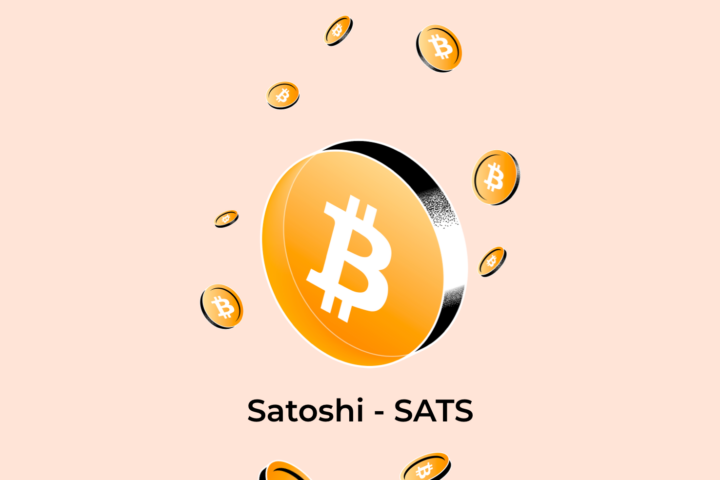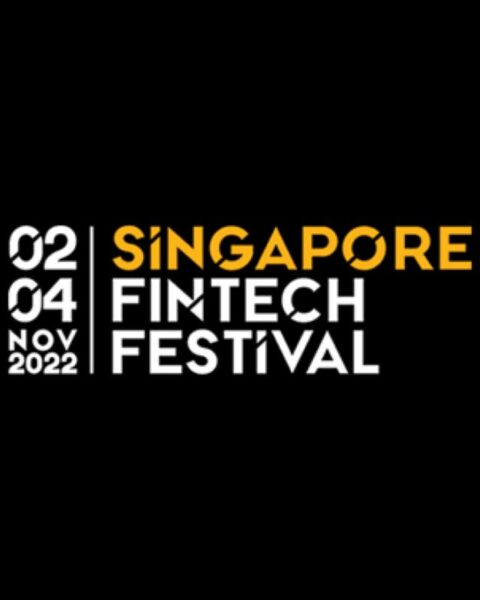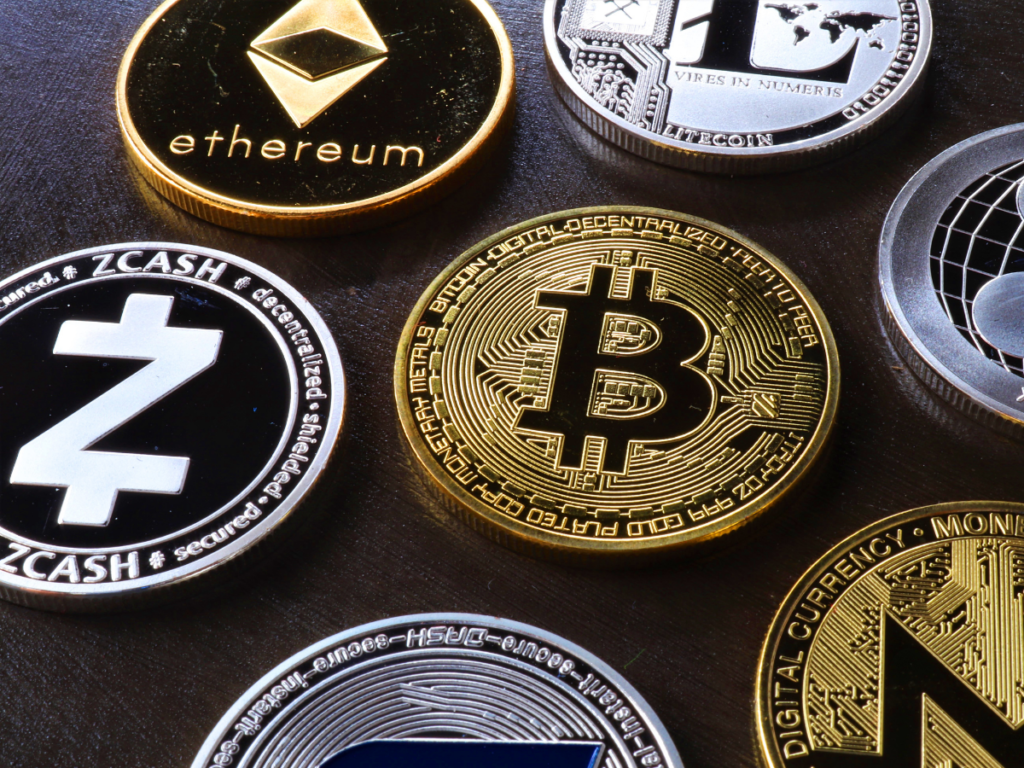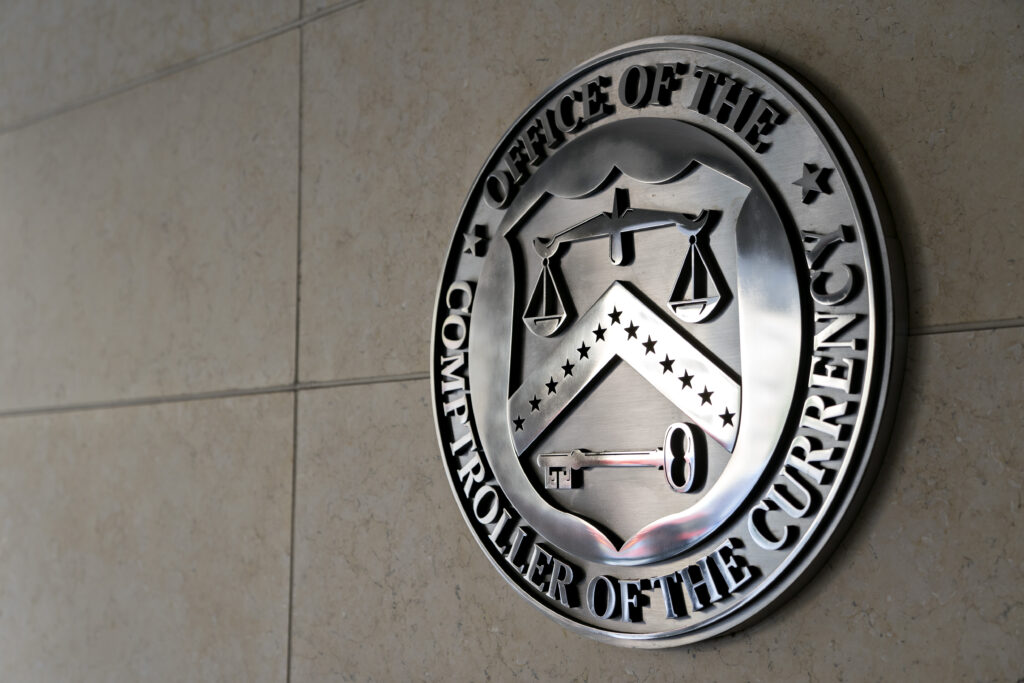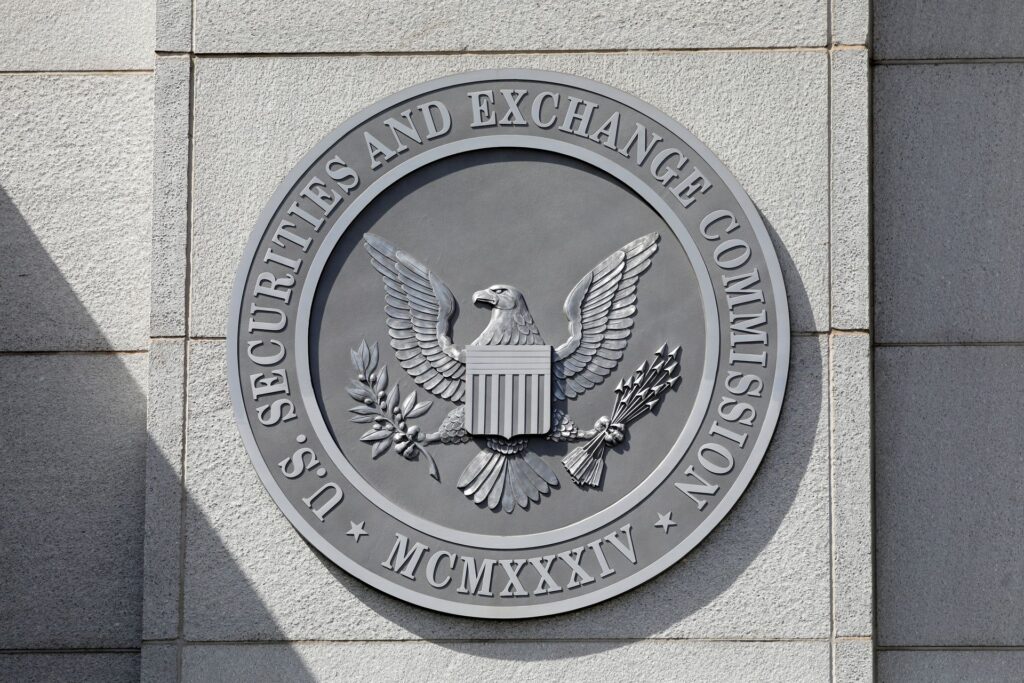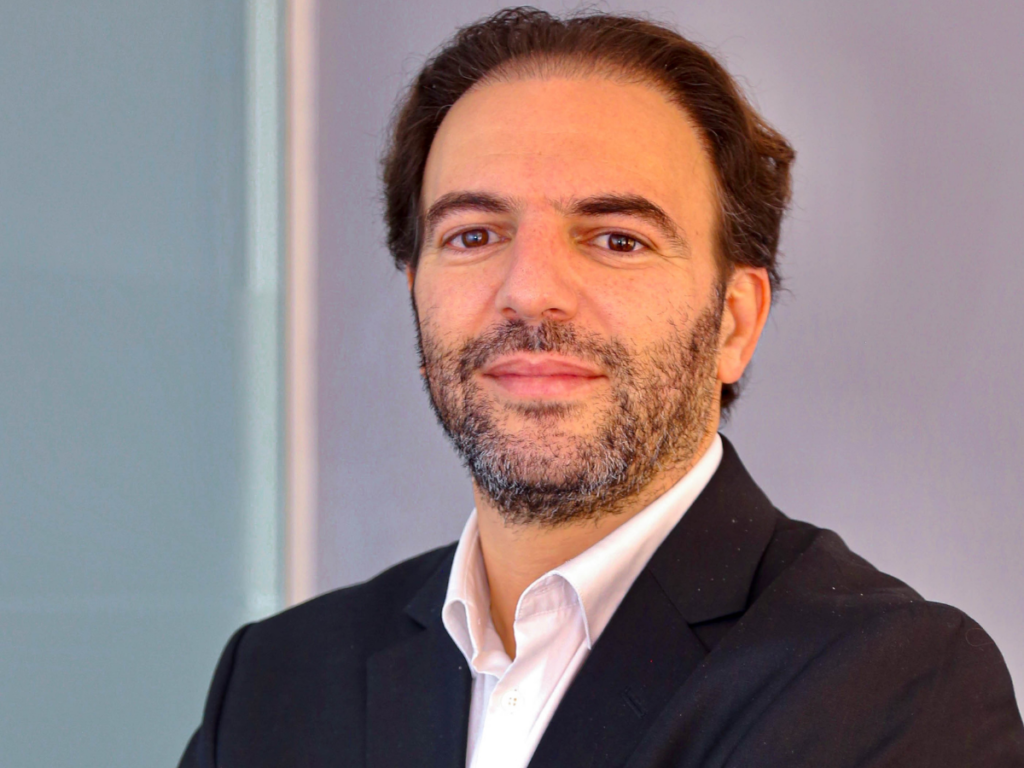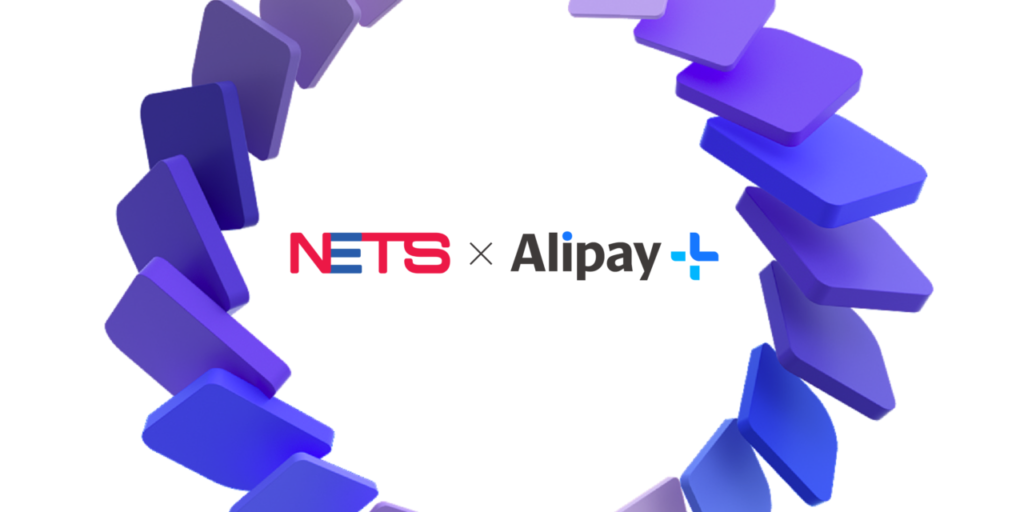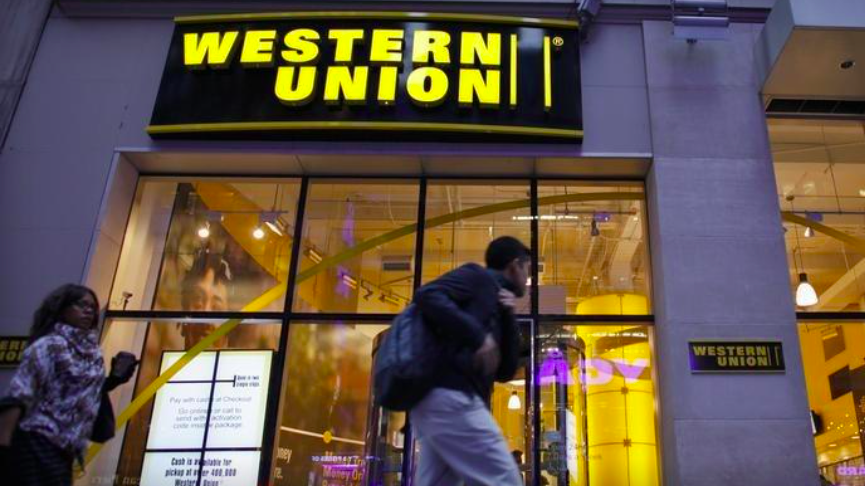Switching to the Satoshi standard and Lightning Network connectivity makes Bitcoin more tangible and easy to use. AAX has made the first move in the crypto space, already providing BTC to SAT
HM Government of Gibraltar to Integrate Blockchain Technology into Government Systems
H.M. Government of Gibraltar has announced that it will begin a process by which it will integrate blockchain technology into its legacy systems in order to streamline government processes. It is envisioned that the implementation, which will initially be rolled out on a pilot basis, will improve the delivery of public services to individuals and organisations residing or operating in Gibraltar.
The proposed blockchain solution will build upon and enhance the functionality of Gibraltar’s eGov system, with the focus of the initial phase being to enable users to store government-issued and certified credentials. The pilot integration project will be delivered by HM Government of Gibraltar who has been working closely in partnership with two firms.
Bitso, a Gibraltar licensed cryptocurrency platform, and IOVlabs, the team behind the RSK blockchain. Both firms have long supported and deeply contributed to Gibraltar’s work in the DLT sector. The government has developed a close working relationship with these firms over time and values their counsel.
Gibraltar’s Minister for Digital and Financial Services, the Hon Albert Isola MP, said, “Gibraltar has successfully positioned itself as a forward-thinking jurisdiction for innovative businesses developing and offering blockchain-related solutions. The implementation of blockchain technology into our processes in partnership with our stakeholders working here will further improve the way in which our community interacts with the government.
We have already begun the process of digitising many of our services through the introduction of the eGov system earlier this year. I am confident that the RSK Blockchain will serve as a solid foundation on which to build the intended programme of services in a coordinated and phased manner further complimenting the work already undertaken.
I am pleased to recognise the invaluable support and contribution provided by our good friend Diego Gutiérrez Zaldívar, CEO of IOVlabs, and his team, who will provide technical and other support on the initiative working hand in hand with our Digital Services team. This project would not have been possible without their total support for which we are most grateful.”
Minister Isola continued, “Equally, the fantastic contribution by Bitso is most welcome as their very generous donation to HM Government of Gibraltar has allowed this exciting project to become a reality and will enable this work to commence in early 2022. At this moment in time, Government would not otherwise commit funding to this project.
The support and commitment of Bitso to the development of Gibraltar as a centre for innovation is most appreciated and we are thrilled to continue to strengthen our relationship with them.”
Shinhan Bank to Conduct Stablecoin International Remittance PoC on Hedera Network, in Partnership with Major Multinational Bank
Shinhan Bank the leading bank in South Korea, announced that it has completed the development of a proof-of-concept, with a global megabank outside of Korea, built on the Hedera network, leveraging stablecoins and focused on international remittances. Utilizing the Hedera Token Service (HTS) and Hedera Consensus Service (HCS), the project aims to test the issuance and distribution of stablecoins, applied to a financial use case that typically suffers from high fees, longer waits and absence of tracking feature.
Under current financial systems, when individuals or organizations send cross-border transfers, the customer bears high intermediary bank costs. For cross-border transfers between countries that lack liquidity and a direct network, customers typically pay the equivalent of an extra twenty to eighty US dollars for intermediaries’ fees on top of regular cross-border transfer fees. Transactions typically take three to seven days to be completed. Furthermore, the customer has no visibility during the transaction, and cannot track his or her transfer during the process. With the stablecoin solution developed by the banks, individuals and organizations can send and receive funds in a locally denominated stablecoin, with remarkably low fees.
Shinhan plans to mint South Korean Won (KRW)- backed stablecoins and the partnering bank will mint stablecoins backed by their local currency. Users will be able to buy KRW-based stablecoin that Shinhan issues, and send them to an account at the partner bank. The recipient will then be able to receive the funds in a locally denominated stablecoin and exchange it for the local currency. The two banks will use the Hedera Consensus Service (HCS) both to track and record transactions and confirm the foreign exchange rate at the time of each transaction.
“International remittances were a massive market of $702 billion in 2020, with $539 billion going to low- and middle-income countries,” said Mance Harmon, CEO and Co-founder of Hedera. There is a massive opportunity to cut out the middleman and make this process dramatically more efficient and cost-effective, getting the most money possible to people who often need it urgently. We commend Shinhan and their partner for developing this solution, and are proud that it takes advantage of the economic and speed benefits that only Hedera can provide.”
Shinhan Bank is a leader in leveraging distributed ledger technology (DLT) to drive financial innovation. In January of this year, Shinhan invested in Korea Digital Asset Custody (KDAC), an industry consortium of businesses that provide digital-asset custody services. In March, Shinhan completed a demonstration platform for central bank digital currencies (CBDCs), together with LG CNS. The company joined the Hedera Governing Council in April 2021.
Officials at Shinhan Bank said, “Joining the Hedera Governing Council this spring has allowed us to significantly accelerate our engagement with other global industry leaders to leverage the power of Hedera’s fast, fair, green public distributed ledger. Cost-effective, efficient international remittance is the perfect, real-world financial use case to build on a network that provides Hedera’s speed and low cost. We are excited to work with a leading global banking partner to deliver the first of what we hope will be many solutions that drive the next generation of finance and financial inclusion.”
2022 The Year of Crypto: US Regulators Plan to Define Legal Bank Activities
U.S. banking regulators intend to clarify in 2022 what role traditional banks can legally play in the cryptocurrency market, they said on Tuesday.
In a statement, regulators said they plan to make clear what sort of activities banks can engage in involving cryptocurrency, including holding it on their balance sheets, issuing stablecoins and holding crypto assets and facilitating crypto trading on behalf of customers, among other currently murky areas.
The joint statement from the Federal Reserve, Federal Deposit Insurance Corporation and Office of the Comptroller of the Currency is an update on work done by an interagency “sprint” team convened earlier this year.
While not providing details, the agencies said the rapid growth of cryptocurrency presents “potential opportunities and risks” for traditional banks. They said regulators want to provide “coordinated and timely” clarity to the institutions they monitor.
“The agencies have identified a number of areas where additional public clarity is warranted,” the agencies said. “Throughout 2022, the agencies plan to provide greater clarity on whether certain activities related to crypto-assets conducted by banking organizations are legally permissible, and expectations for safety and soundness, consumer protection, and compliance with existing laws and regulations.”
Agency officials have been working on identifying risks facing banks engaging in crypto activity, as well as whether existing regulations must be updated to account for that activity.
Deutsche Bank launches Swift Beneficiary Account Verification service
Deutsche Bank has rolled out Swift’s new Beneficiary Account Validation (BAV) service, enabling clients to verify payee account details before an international payment instruction is sent.The service enables Deutsche to ensure that payments from its clients are arriving at the intended beneficiary using the correct account details, by validating the information centrally via Swift. The bank can also use it to respond to incoming validation requests.
More than 70 banks have so far signed up to the BAV service but Deutsche Bank is the first to roll out the system on a global basis, building a straightforward API layer on top, enabling it to validate accounts across its global markets in real time.
The German lender also plans to incorporate BAV into its online cash management channel in the next year, where clients could pre-validate their beneficiary accounts while the payments are being created online.
Jose-M Buey, global head, core platforms and accounts solutions, Deutsche Bank Corporate Bank, says: “The BAV service not only addresses a key market problem prevalent today, but also brings significant operational benefits in terms of end-to-end efficiency and fraud reduction to our corporate clients.
“It is also a clear example of how API technology can be used to create an innovative solution that perfectly aligns with our strategy to build a real-time API based accounts platform.”
SEC Commissioner outlines DeFi risk and opportunities
Whether in the news, social media, popular entertainment, and increasingly in people’s portfolios, crypto is now part of the vernacular.[1]But what that term actually encompasses is broad and amorphous and includes everything from tokens, to non-fungible tokens, to Dexes to Decentralized Finance or DeFI. For those readers not already familiar with DeFi, unsurprisingly, definitions also vary. In general, though, it is an effort to replicate functions of our traditional finance systems through the use of blockchain-based smart contracts that are composable, interoperable, and open source.[2] Much of DeFi activity takes place on the Ethereum blockchain, but any blockchain that supports certain types of scripting or coding can be used to develop DeFi applications and platforms.
DeFi presents a panoply of opportunities. However, it also poses important risks and challenges for regulators, investors, and the financial markets. While the potential for profits attracts attention, sometimes overwhelming attention, there is also confusion, often significant, regarding important aspects of this emerging market. Social media questions like “who in the U.S. regulates the DeFi market?” and “Why are regulators involved at all?” abound. These are crucial questions, and the answers are important to lawyers and non-lawyers alike. This article attempts to provide a short background on the current regulatory landscape for DeFi, the role of the United States Securities and Exchange Commission (“SEC”), and highlights two important hurdles that the community should address.[3]
I. Many Investments Share Important Attributes
Many DeFi offerings and products closely resemble products and functions in the traditional financial marketplace.[4] There are decentralized applications, or dApps, running on blockchains, that enable people to obtain an asset or loan upon posting of collateral, much like traditional collateralized loans.[5] Others offer the ability to deposit a digital asset and receive a return. Both types of products offer returns, some directly, and some indirectly by enabling the use of borrowed assets for other DeFi investing opportunities. In addition, there are web-based tools that help users identify, or invest in, the highest-yielding DeFi instruments and venues.[6] Other applications let users earn fees in exchange for supplying liquidity or market making.[7] There are also tokens coded to track the prices of securities trading on registered U.S. national securities exchanges, and then can be traded and used in a variety of other DeFi applications. So while the underlying technology is sometimes unfamiliar, these digital products and activities have close analogs within the SEC’s jurisdiction.
These similarities should come as a surprise to no one, considering finance is in the name. It should also come as a surprise to no one that investing is often at the core of DeFi activity. This movement is not about merely developing new digital asset tokens. Developers have also constructed smart contracts that offer individuals the ability to invest, to lever those investments, to take a variety of derivative positions, and to move assets quickly and easily between various platforms and protocols. And there are projects that show a potential for scalable increased efficiencies in transactions speed, cost, and customization.
These projects are evolving incredibly fast with new and interesting potential. Considering the relative infancy of blockchains that support the scripting needed for sophisticated smart contracts, DeFi development is particularly impressive. But these offerings are not just products, and their users are not merely consumers. DeFi, again, is fundamentally about investing. This investing includes speculative risks taken in pursuit of passive profits from hoped-for token price appreciation, or investments seeking a return in exchange for placing capital at risk or locking it up for another’s benefit.
II. Unregulated Markets Suffer From Structural Limitations
Market participants who raise capital from investors, or provide regulated services or functions to investors, generally take on legal obligations. In what may be an attempt to disclaim those legal obligations, many DeFi promoters disclose broadly that DeFi is risky and investments may result in losses, without providing the details investors need to assess risk likelihood and severity.[8] Others could accurately be characterized as simply advocating a “buyer beware” approach; by participating, investors assume the risk of any and all losses. Given this, many current DeFi participants recommend that new investors exercise caution, and many experts and academics agree there are significant risks.[9]
While DeFi has produced impressive alternative methods of composing, recording, and processing transactions, it has not rewritten all of economics or human nature. Certain truths apply with as much force in DeFi as they do in traditional finance:
Unless required, there will be projects that do not invest in compliance or adequate internal controls;
when the potential financial rewards are great enough, some individuals will victimize others, and the likelihood of this occurring tends to increase as the likelihood of getting caught and severity of potential sanctions decrease; and
absent mandatory disclosure requirements,[10] information asymmetries will likely advantage rich investors and insiders at the expense of the smallest investors and those with the least access to information.
Accordingly, DeFi participants’ current “buyer beware” approach is not an adequate foundation on which to build reimagined financial markets. Without a common set of conduct expectations, and a functional system to enforce those principles, markets tend toward corruption, marked by fraud, self-dealing, cartel-like activity, and information asymmetries. Over time that reduces investor confidence and investor participation.[11]
Conversely, well-regulated markets tend to flourish, and I think our U.S. capital markets are prime examples. Because of their reliability and shared adherence to minimum standards of disclosure and conduct, our markets are the destination of choice for investors and entities seeking to raise capital. Our securities laws do not merely serve to impose obligations or burdens, they provide a critical market good. They help address the problems noted above, among others, and our markets function better as a result. But, in the brave new DeFi world, to date there has not been broad adoption of regulatory frameworks that deliver important protections in other markets.
III. Who Regulates DeFi?
In the United States, multiple federal authorities likely have jurisdiction over aspects of DeFi, including the Department of Justice, the Financial Criminal Enforcement Network, the Internal Revenue Service, the Commodity Futures Trading Commission, and the SEC.[12] State authorities likely have jurisdiction over aspects as well.[13] In spite of the number of authorities having some jurisdictional interest, DeFi investors generally will not get the same level of compliance and robust disclosure that are the norm in other regulated markets in the U.S. For example, a variety of DeFi participants, activities, and assets fall within the SEC’s jurisdiction as they involve securities and securities-related conduct.[14] But no DeFi participants within the SEC’s jurisdiction have registered with us, though we continue to encourage participants in DeFi to engage with the staff. If investment opportunities are offered completely outside of regulatory oversight, investors and other market participants must understand that these markets are riskier than traditional markets where participants generally play by the same set of rules.
IV. The Role of the SEC
As an SEC Commissioner I have a duty to help ensure that market activity, whether new or old, operates fairly, and offers all investors a level playing field.[15] I would expect this goal to be one DeFi market participants also support.
To do this, the SEC has a variety of tools at its disposal ranging from rulemaking authority, to various exemptive or no action relief, to enforcement actions. Importantly, if DeFi development teams are not sure whether their project is within the SEC’s jurisdiction, they should reach out to our Strategic Hub for Innovation and Financial Technology (“FinHub”), or our other Offices and Divisions, all of which have experts well-versed in issues relating to digital assets.[16] It is my understanding that FinHub has never refused a meeting, and their engagement is meaningful.[17] If a series of meetings is needed, they spend the necessary time. If a project does not fit neatly within our existing framework, before proceeding to market, that project team should come and talk to us.[18] The more the project team can lead that discussion with possible solutions, the better outcomes they can expect. Our staff cannot offer legal advice, but they stand ready to listen to ideas and provide feedback, as developers know their projects better than we ever could. If the project is seemingly constrained by our rules, it is critical for us to get specific ideas about how these new technologies can be integrated into our regulatory regime to ensure the market and investor protections afforded by the federal securities laws, while allowing innovations to flourish.
That being said, for non-compliant projects within our jurisdiction, we do have an effective enforcement mechanism. For example, the SEC recently settled an enforcement action with a purported DeFi platform and its individual promoters. The SEC alleged they failed to register their offering, which raised $30 million, and misled their investors while improperly spending investor money on themselves.[19] To the extent other offerings, projects, or platforms are operating in violation of securities laws, I expect we will continue to bring enforcement actions. But my preferred path is not through enforcement, and I do not consider enforcement inevitable. Broad non-compliance that necessitates numerous enforcement actions is not an efficient way to achieve what I believe are shared goals for DeFi. The more projects that voluntarily comply with regulations, the less frequently the SEC will have to pursue investigations and litigation.
V. Structural Hurdles
I recognize it is not the SEC’s role to prevent all investment losses. It is also not my goal to restrict investor access to fair and appropriate opportunities. But it is my job to demand that investors have equal access to critical information so they can make informed decisions whether to invest and at what price. I am similarly committed to ensuring markets are fair and free from manipulation. Given this, it seems that there are two specific structural problems that the DeFi community needs to address.
A. Lack of Transparency
First, although transactions often are recorded on a public blockchain, in important ways, DeFi investing is not transparent. I am concerned that this lack of transparency contributes to a two tier market in which professional investors and insiders reap outsized returns while retail investors take more risks, get worse pricing, and are less likely to succeed over time.[20] Much of DeFi is funded by venture capital and other professional investors. It is unclear to me how well known this is in the DeFi retail investor community, but the underlying funding deals often grant professional investors equity, options, advisory roles, access to project team management, formal or informal say on governance and operations, anti-dilution rights, and the ability to distribute controlling interests to allies, among other benefits. Rarely are these arrangements disclosed, but they can have a significant impact on investment values and outcomes. Retail investors are already operating at a significant disadvantage to professional investors in DeFi,[21] and this information imbalance exacerbates the problem.
Some contend that DeFi is, in fact, more egalitarian and transparent because much of the activity is based on code that is publicly available.[22] However, only a relatively small group of people can actually read and understand that code, and even highly-qualified experts miss flaws or hazards. Currently the quality of that code can vary drastically, and has a significant impact on investment outcomes and security. If DeFi has ambitions of reaching a broad investing pool, it should not assume a significant portion of that population can or wants to run their own testnet to understand the risks associated with the code on which their investment prospects rely. It is not reasonable to build a financial system that demands investors also be sophisticated interpreters of complex code.
Put simply, if a retail investor has $2,000 to invest in a risky programmable asset, it is not cost effective for that investor to hire experts to audit the code to ensure it will behave as advertised. Instead, retail investors must rely on information available through marketing, advertising, word of mouth, and social media. Professional investors, on the other hand, can afford to hire technical experts, engineers, economists, and others, before making an investment decision. While this professional advantage exists historically in our financial markets, DeFi exacerbates it. DeFi removes intermediaries that perform important gatekeeping functions and operates outside the existing investor and market protection regime. That can leave retail investors without access to professional financial advisors or other intermediaries who help screen potential investments for quality and legitimacy. These provide meaningful fraud reduction and risk assessment assistance in traditional finance, but there are limited substitutes in DeFi.
B. Pseudonymity
A second foundational challenge for DeFi is that these markets are vulnerable to difficult to detect manipulation. DeFi transactions occur on a blockchain, and each transaction is recorded, immutable, and available for all to see. But that visibility extends only down to a certain identifier. Because of pseudonymity, the blockchain displays the blockchain address that sent or received assets, but not the identity of the person who controls it.
Without an efficient method for determining the actual identity of traders, or owners of smart contracts, it is very difficult to know if asset prices and trading volumes reflect organic interest or are the product of manipulative trading by, for example, one person using bots to operate multiple wallets, or a group of people trading collusively. There are specific U.S. securities laws prohibiting trading for the purpose of giving the false appearance of market activity or to manipulate the price of a security,[23] because successful investing depends on reliable information and market integrity. Pseudonymity makes it much easier to conceal manipulative activity and almost impossible for an investor to distinguish an individual engaging in manipulative trading from normal organic trading activity. In DeFi, because markets often turn on asset price, trading volumes, and momentum, investors are vulnerable to losses due to manipulative trading that makes those signals unreliable. To the extent transactions occur off public blockchains, it is even more difficult to assess whether trading is legitimate.
I recognize that in some ways DeFi is synonymous with pseudonymous. The use of alphanumeric strings that obscure real world identity was a core feature of Bitcoin and has been present in essentially all blockchains that have followed. But in the U.S., investors have long been comfortable with a compromise in which they give up some limited degree of privacy by sharing their identity with the entity through which they trade securities. In return, they benefit from regulated markets that are more fair, orderly, and efficient, with less manipulation and fraud.
In moving to DeFi, I suspect most retail investors are not doing so because they seek greater privacy; they are seeking better returns than they believe they can find from other investments. While some in DeFi believe in absolute financial privacy, I expect that projects that solve for pseudonymity are more likely to succeed, because investors can then be comfortable that asset prices reflect actual interest from real investors, not prices pumped by hidden manipulators. Projects that address this problem are also more likely to be able to comply with SEC regulations and other legal obligations, including requirements around anti-money laundering and countering the financing of terrorism imposed by the Bank Secrecy Act.
VI. Conclusion
My respect for innovation does not lessen my commitment to help ensure all our financial markets are sustainable and offer average investors a fair chance of success. DeFi is a shared opportunity and challenge. Some DeFi projects fit neatly within our jurisdiction, and others may struggle to comply with the rules as currently applied. It is not enough to just say it is too hard to regulate or to say it is too hard to comply with regulations.
It is a positive sign that many projects say they want to operate within DeFi in a compliant way. I credit their sincerity on this point, and hope they commit resources to collaborating with the SEC staff in the same spirit. For DeFi’s problems, finding compliant solutions is something best accomplished together. Reimagining our markets without appropriate investor protections and mechanisms to support market integrity would be a missed opportunity, at best, and could result in significant harm, at worst. In conceiving a new financial system, I believe developers have an obligation to optimize for more than profitability, speed of deployment, and innovation. Whatever comes next, it should be a system in which all investors have access to actionable, material data, and it should be a system that reduces the potential for manipulative conduct. Such a system should lead capital to flow efficiently to the most promising projects, rather than being diverted by mere hype or false claims. It should also be designed to advance markets that are interconnected, but with sufficient safeguards to withstand significant shocks, including the potential for rapid deleveraging. In decentralized networks with diffuse control and disparate interests, regulations serve to create shared incentives aligned to benefit the entire system and ensure fair opportunities for its least powerful participants.
My staff and I have been actively engaged in helpful discussions with DeFi experts and my door remains open.[24] I can’t promise an easy or quick process, unfortunately, but I can assure you of good faith consideration and a true desire to help promote responsible innovation.
[1] I am deeply grateful to my colleagues Robert Cobbs, Kathleen Gallagher, Micah Hauptman, Claire O’Sullivan, and Gosia Spangenberg, whose hard work made this submission possible. I would like to particularly thank my colleague David Hirsch, who has been instrumental not only to this submission, but also provides valuable support to my office’s overall approach to digital assets. We are also grateful to a variety of industry experts and attorneys who generously shared their time and ideas, and helped deepen my understanding of these questions. And finally, thanks to Dr. Matthias Artzt, Sandra Ro, and all the editors of The International Journal of Blockchain Law. The views I express herein are my own and do not necessarily reflect the views of the Commission, my fellow Commissioners, or the SEC Staff.
[2] Composable refers to the ability to link smart contracts and build on existing modular code, which leads some to refer to DeFi applications as money Legos. See Quantstamp Labs, DeFi’s Composability: More Possibility, More Risk, (last visited Nov. 8, 2021). The term interoperable describes the ability to use DeFi protocols and applications across platforms and smart contracts. See Fabian Schär, Decentralized Finance: On Blockchain and Smart Contract-Based Financial Markets, Fed. Res. Bank St. Louis Rev. 153 (Feb. 5. 2021).
[3] In addition to the securities law issues addressed in this article, regulators have also raised concerns about DeFi projects’ failures to comply with rules relating to anti-money laundering, combating the financing of terrorism, tax compliance, the Commodity Exchange Act, and other issues. While not the primary focus of this article, I share some of those same concerns.
[4] The DeFi market overall has grown dramatically. DeFi today has more than $101 billion in total value locked, representing rapid expansion since September 2020 when that figure stood at $19.5 billion. See Marketforces Africa, DeFi Market Soared 335% to $85 Billion, (last visited Nov. 8, 2021).
[5] See Schär, supra note 3, at 164.
[6] Id. at 165.
[7] Id. at 162.
[8] I listened to a recent podcast in which a young developer acknowledged that humans as a species are attracted to high returns, but are also bad at considering risk in choosing where to invest and at what price. He also said that people were mortgaging their homes to free up funds with which to invest in DeFi, and that he was concerned the outcome could be scary. Without reference to this specific person, it seems like common knowledge that some retail investors are taking on huge exposure in DeFi without understanding the risk or having the ability to price for it. Developers should build systems that are compliant with important regulatory and policy frameworks so that investors have all material information, including about the potential risks, and are protected from misconduct that puts them at a disadvantage.
[9] See Nic Carter & Linda Jeng, DeFi Protocol Risks: The Paradox of DeFi, RiskBooks (forthcoming 2021).
[10] For activity within the SEC’s jurisdiction, compliance with the investor protections of the Securities Act of 1933 and the Securities and Exchange Act of 1934 requires important disclosures.
[11] There is a great deal of academic research into network effects and how network adoption and engagement benefits the value of networks. I would be interested in research that studies how fraud and other violations of trust within a network impact that network’s value by reducing adoption and engagement, and the potential for this impact to extend to competing networks.
[12] The U.S. government has dedicated significant resources to providing feedback, supporting innovation, and developing in-house expertise to ensure regulatory approaches are based on an accurate understanding of the technology. For example, the SEC has a FinHub, and a number of other authorities have innovation initiatives that engage with market participants and study the technology.
[13] See Melanie Waddell, State Securities Regulators Report Tripling of Digital Asset Enforcement Actions, ThinkAdvisor (last visited Nov. 8, 2021).
[14] At the SEC we have existing laws and rules that guide our approach and are shaped by court interpretations. Rather than proactively labeling every investment vehicle as a security or not a security, we look at specific facts and circumstances and apply the law based on that analysis. We do not have a measuring box like at airports, where if a bag fits inside it can be carried on, and otherwise must be checked. That type of mechanical jurisdictional test might be easier to apply and yield a faster conclusion, but ultimately would require us to revise the test and adapt the rules every time a new type of investment is introduced or changes in form. Considering that we regulate capital markets exceeding $110 trillion, made up of tens of thousands of entities, that type of proactive “define everything” approach is too rigid, and markets are too large, for it to be workable. Our statutes recognize that and provide for a flexible, principles-based approach, but one that also inherently requires a more detailed analysis to determine whether specific conduct or assets are within the SEC’s jurisdiction.
[15] My responsibility extends to conduct within the SEC’s jurisdiction, and my able colleagues at sibling agencies are responsible for other types of conduct.
[16] See SEC Strategic Hub for Innovation and Financial Technology (“FinHub”).
[17] FinHub comprises representatives across the SEC’s Divisions, and so those meetings includes access to a broad range of experts. FinHub is also an important resource to the Commission as it considers policy choices.
[18] Coming in to speak with SEC staff does not provide amnesty for violative conduct. It is, however, an important path to help projects identify potential SEC regulatory compliance issues, discuss possible solutions, and develop a plan to operate legally. To the extent a project team has already been operating outside of compliance, working with staff to prevent future violations may also position it to more quickly and inexpensively resolve any potential enforcement action for related past violations. Our Division of Enforcement considers cooperation when determining what remedies to recommend for violative conduct and we have agreed to settle multiple cases with reduced or no penalties in response to self-reporting violations, including in the digital assets space. See, e.g., In the Matter of Gladius Networks, Order Instituting Cease and Desist Proceedings, Securities Act Release No. 10608 (Feb. 20, 2019).
[19] See In the Matter of Blockchain Credit Partners d/b/a DeFi Money Market, Gregory Keough, and Derek Acree, Order Instituting Cease and Desist Proceedings, Securities Act Release No. 10961 (Aug. 6, 2021).
[20] I recognize that DeFi has experienced significant asset price appreciation, and that is part of what motivated me to write this. The impacts of the information disparities or market conduct on retail investors may not be easy to see until the next DeFi market downturn or crisis.
[21] Joel Khalil, Investing in DeFi is Seriously Risky But Maybe It Doesn’t Have to Be, Techradar.com (last visited Nov. 8, 2021) (describing “[h]igh transaction fees, market volatility and security incidents linked with vulnerabilities in smart contracts” as risks that are more pronounced for retail investors).
[22] Kevin Werbach, Finance 3.0: DeFi, Dapps, and the Promise of Decentralized Disruption, The Reboot (last visited Nov. 8, 2021).
[23] See 15 U.S.C. § 78i (2018).
[24] In a recent speech I requested input from digital assets market participants. See Caroline Crenshaw, Commissioner, Sec. & Exch. Comm’n, Digital Asset Securities – Common Goals and a Bridge to Better Outcomes (Oct. 12, 2021). Unfortunately, that has not yet yielded much of a response from a community that often says it lacks necessary guidance from the SEC, among others. My door remains open, and I welcome your ideas. I’ve created a dedicated mailbox for this purpose: [email protected].
AI-Powered Digital Wealth Manager FinaMaze Strengthens Investment Product Offerings with the Launch of New Smartfolios Dedicated to Prime Retail Clients
FinaMaze, the hybrid human/ robo wealth manager regulated by the Financial Services Regulatory Authority in the ADGM, unveils a new series of Smartfolios, dedicated to Prime Retail investors, following a year-long growth.
Prime Retail Investors have now an extended choice to invest in 10 suitable diversified Smartfolios with a focus on:
– Global stocks, ESG, Islamic or FICC (Fixed Income Currencies Commodities)
– Regional stock markets: USA, Gulf, China or India,
– Sectors: Tech or G10 Real estate.
Each Smartfolio is built, monitored and rebalanced by FinaMaze algorithms, under the supervision of the FinaMaze Investment team, to remain suitable for each Prime Retail investor’s risk appetite and parameters, seeking optimal diversification while minimizing transaction costs.
“Several months after launching to only ‘Professional’ investors, and after a thorough assessment of our internal control systems, processes and ledgers, we are excited to have obtained the Retail client endorsement, granted to us by the regulator. This is undeniably a testimony of the robustness of our investment solution. Now, with a simple and fully automated online onboarding, any potential investor can have access to ‘Private-Banking-Grade’ investments at a fraction of the fees”, says Mehdi Fichtali, the Founder and CEO of FinaMaze.
Launched during the FinTech Abu Dhabi 2020 forum in November 2020, FinaMaze is gradually cementing its status as the MENA region’s AI-digital wealth manager. It offers low-fees AI-powered strategies that either track the markets as a whole or follow specific market trends and thematics to deliver returns in line with each investor’s risk appetite and behaviour.
Airwallex bolsters ASEAN presence with regulatory approval in Singapore
Airwallex, a global fintech platform, today announced at Singapore FinTech Festival that its Singapore entity, Airwallex (Singapore) Pte Ltd, has been granted a Major Payment Institution License by the Monetary Authority of Singapore (MAS) under the Payment Services Act. Airwallex is permitted to provide a suite of payment services including account issuance, domestic money transfer, cross-border money transfer, merchant acquisition and e-money issuance.
Airwallex will progressively introduce a suite of product and service offerings that will enable businesses in Singapore to operate and grow across the ASEAN region and globally. This includes a modern global business account, multi-currency wallet, company and employee cards, spend management, online payments, international collection & transfer and other value-add solutions for Small and Medium-sized businesses, as well as an API for larger enterprise businesses that require embedded payments and financial services.
Jack Zhang, CEO and Co-founder of Airwallex said, “We are pleased to have received regulatory approval in Singapore as we continue to make steady progress in Southeast Asia, scaling our payment offerings and solutions in the region for our customers. Receiving this approval reflects our robust policies, compliance framework and risk management systems we have put in place. We will continue to work closely with regulators and partners to ensure we facilitate a safe, effective and transparent way to manage their cross-border financial transaction needs. We look forward to launching our services in Singapore next year and enabling businesses in Singapore to operate globally without borders.”
Founded in 2015, Airwallex is one of the fastest growing financial technology companies today. The company has nearly doubled its headcount in 2021 to over 1,000 employees today across 19 locations globally, including Singapore. In September, the company also announced its entry in Southeast Asia after securing a money service business (MSB) license in Malaysia, followed by news of a US$200 million Series E fundraising round, raising its valuation to US$4 billion as it continues to focus on its regional and global expansion.
NETS to integrate Alipay+ to enhance cross-border digital payments capabilities
Singapore’s payment services group Network for Electronic Transfers (NETS) and Ant Group today jointly announced a plan for NETS to integrate Alipay+ to further enhance the digital payments capabilities of NETS’ local merchants.
Through the deployment of Alipay+ solutions, NETS can facilitate seamless transactions between local businesses and global consumers visiting Singapore, potentially connecting its Singapore merchants with e-wallet users worldwide.
Introduced by Ant Group since 2020, the Alipay+ solutions are designed to make it easy for businesses, especially small and medium-sized businesses to accept different payment methods and conduct cost-effective digital marketing campaigns. It also makes it more convenient for e-wallet users to make payments easily away from their home country.
The adoption of Alipay+ solutions is in line with NETS’ efforts to drive payment technology innovation, to create additional revenue streams and strengthen operational efficiency for its merchants. Merchants will be able to accept payments in Singapore currency from Asia’s local e-wallet holders who will pay in their home wallet currency. This will enable merchants to serve global customers better whilst providing consumers with access to a wider merchant base.
Efforts are underway to integrate the Alipay+ solutions into NETS’ merchant portal with the aim to be operationally ready by early 2022.
Western Union Powers Cross-Border Digital Money Movement with Singtel’s Dash
Western Union, a global leader in cross-border, cross-currency money movement and payments has partnered with Singtel’s Dash to enable international money transfers digitally for Dash’s customers in Singapore.
A Memorandum of Understanding (“MOU”) was signed on October 14, 2021, between Western Union and SingCash Pte Ltd. (“SingCash”), representing Singtel Dash. Dash is Singtel’s all-in-one mobile wallet, offering in-store as well as online payment solutions for customers.
For the first time, Western Union’s digital money transfer capabilities will be integrated with a mobile wallet in Singapore with the transaction experience all native within the Dash app, offering enhanced convenience to Dash customers. After the definitive agreement is signed and integration completed, the service will be introduced in phases, enabling Dash customers in Singapore to seamlessly send money around the world, starting with India and eventually scaling up to the wide scope and reach of Western Union’s global payout network.
Singapore is a vital economic hub, bringing people together from across the Asia Pacific region and lifting them toward prosperity. International migrants working and living in Singapore represent a significant part of the population; this, coupled with the accelerated adoption of digital channels, provides an incredible potential to meet the evolving needs of these individuals as they support their loved ones back home.
“At Western Union we believe that innovative payment solutions should be customer driven,” said Western Union Head of Middle East and Asia Pacific, Sohini Rajola, during the official unveiling at Singapore Fintech Festival on November 8, 2021.
“Western Union innovates like an entrepreneur. As a 170-year-old company operating in the fintech space, we have learned that the mindset of an entrepreneur is ageless. The global reach and scale of our business, powered by technology and innovation, has uniquely positioned us to create a truly inclusive platform. Today, we are excited to partner with Singtel Dash, powering our techfocused strategy to enable customers to reliably and conveniently complete financial transactions with just a few clicks.” Rajola added, “It’s an honor to work as like-minded companies, inspiring each other with innovative thinking and concepts for building a cross-border financial ecosystem that addresses consumer needs, both today and tomorrow.”
Gilbert Chuah, Head of Financial and Lifestyle Services at Singtel said, “Since the onset of COVID, digital payment use has risen, with people performing more transactions digitally from the safety of their home. Our partnership with Western Union answers to our customers’ demand for a simpler and more convenient way to send money internationally. We are building Dash to be the all-in-one wallet, so that our customers can conduct their daily transactions easily on a single app. As payment technology evolves, we will be looking to enable even more innovation on the Dash app and bring more value to our Dash customers.”
Western Union’s strategy to open its platform and worldwide financial network to serve third-party companies has established it as a unique partner for global money movement, enabling organizations in telecommunications, technology, financial services and other sectors to enhance services for their customers. The Company offers a unique platform with a global scale and local market knowledge to enable international payouts into billions of bank accounts and millions of wallets and cards, across more than 125 countries and territories, with real-time capabilities in 100 of these countries. Additionally, it also offers payout in cash in approximately 600,000 retail locations in 200+ countries and territories.
MAS and BSP to Pursue Cross-border Payment Linkages
LiveThe Monetary Authority of Singapore (MAS) and the Bangko Sentral ng Pilipinas (BSP) today signed an enhanced FinTech Cooperation Agreement (CA) to facilitate interoperable payments between Singapore and the Philippines.
The enhanced CA builds on the earlier 2017 agreement to broaden the scope of FinTech collaboration and partnership between MAS and BSP. The CA will facilitate the linkage of both countries’ real-time and QR payment systems, to provide instant, seamless and low-cost cross-border payments. This is a significant initiative given the sizeable remittance flows between Singapore and the Philippines, which totalled SGD 2.89 billion1 in 2020; and cater to the pre-pandemic yearly average of approximately 900,0002 travellers between both countries.
MAS and BSP’s collaboration in payment infrastructure projects align with the G20’s efforts to address existing frictions in global cross-border payments and contributes to the Association of Southeast Asian Nations (ASEAN) goal of establishing regional payments integration by 2025. Both central banks will also explore multilateral interoperability of these projects, in keeping with regional efforts to establish further linkages within ASEAN and with countries outside the region.
Ravi Menon, Managing Director of MAS, said, “The enhancements to the MAS-BSP FinTech Cooperation Agreement will help fast track payments connectivity between Singapore and the Philippines. Critically, the linking of our QR and real-time payment systems also marks a concrete step towards the vision of an ASEAN network of interconnected real-time payment systems.” 5. Benjamin E. Diokno, Governor of BSP, said, “The BSP is taking the initial step in linking the Philippine payment system with those of our ASEAN neighbours, beginning with Singapore. Effectively linking our QR and real-time payment systems will enhance the safety and efficiency of cross-border payments through the smoother and seamless international transfer of funds, ultimately promoting the financial welfare of Filipinos that regularly use cross-border payment services. These beneficiaries may include overseas Filipinos; export, import and tourism businesses; as well as firms with affiliates or investors abroad. This enhanced CA will further strengthen our ties with Singapore and take us a step closer towards having an integrated and interoperable cross-border payment system in the ASEAN region.”



